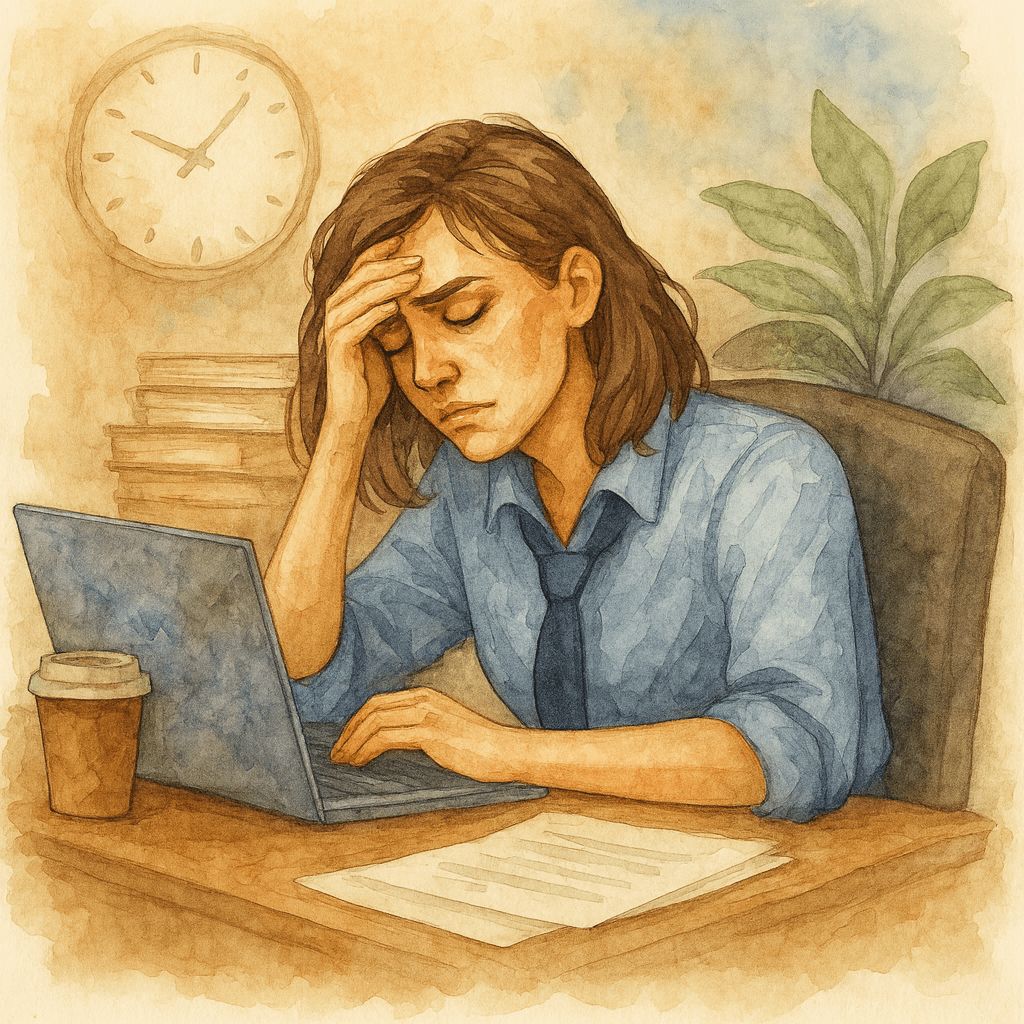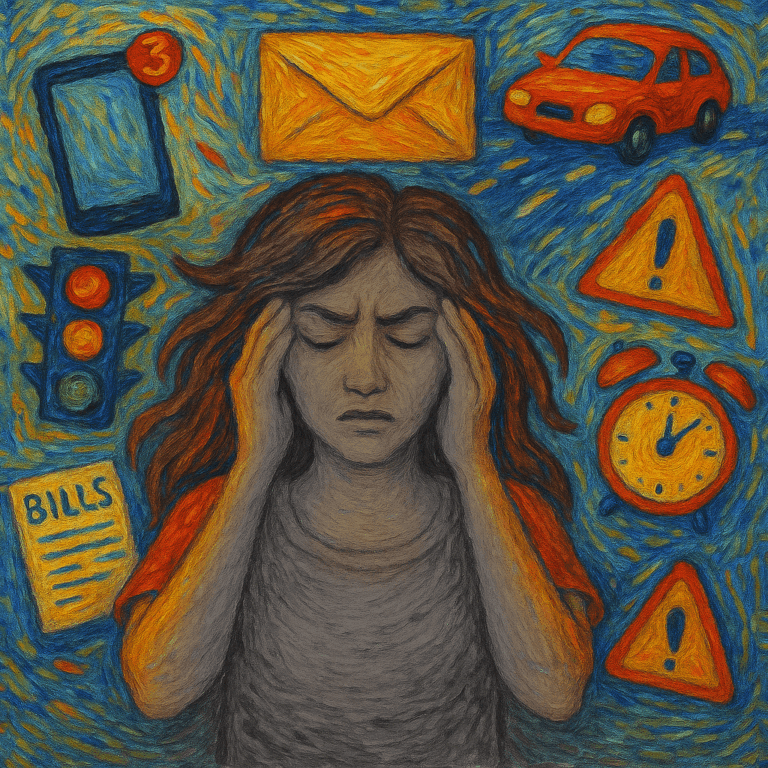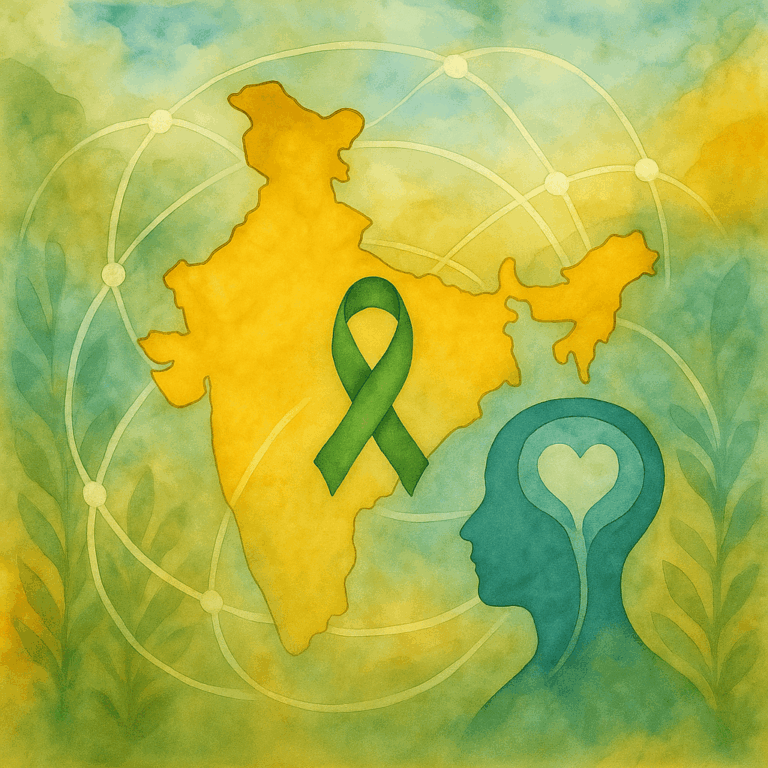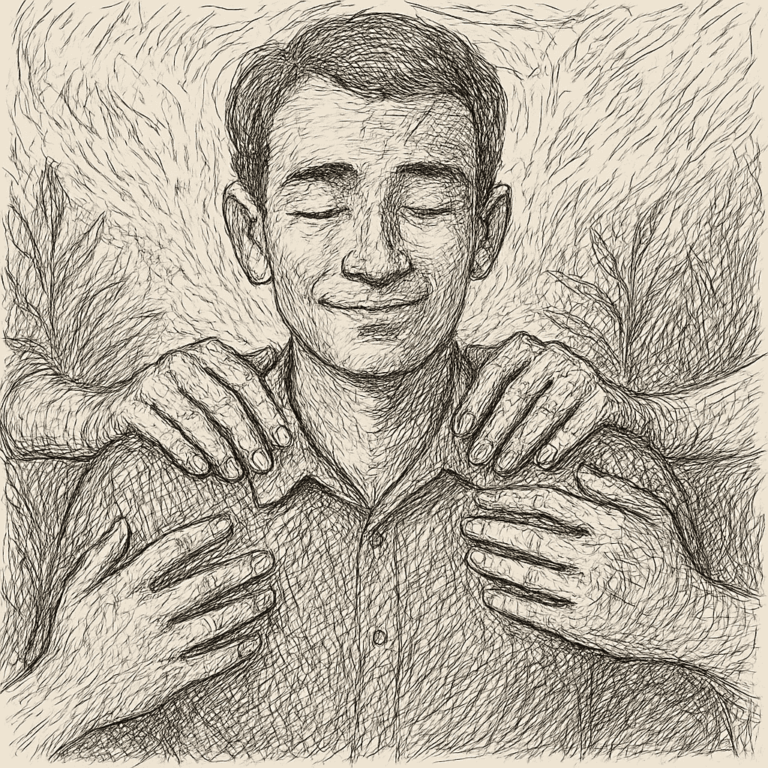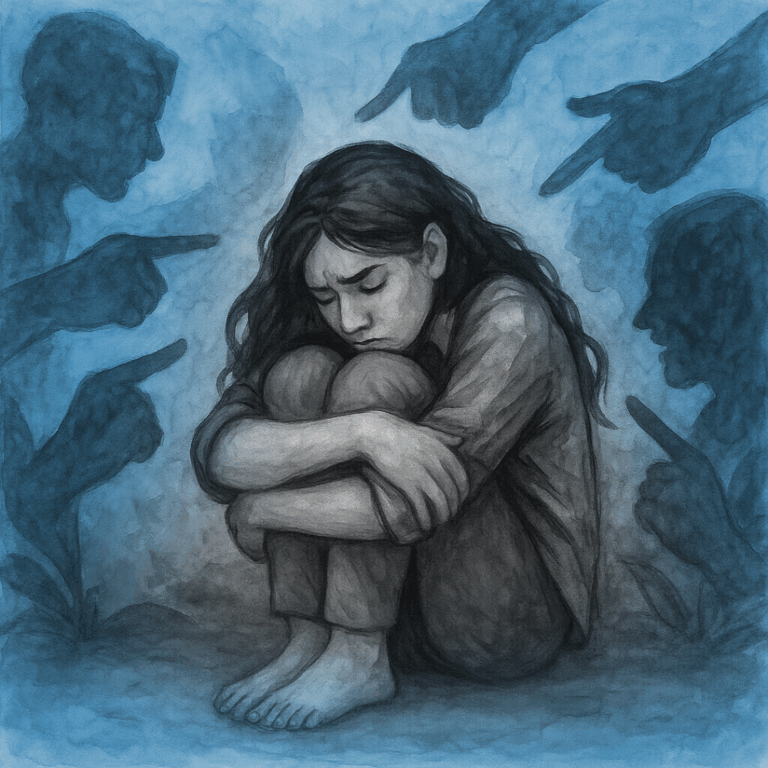In today’s fast-paced world, being “busy” has become a badge of honour. Deadlines, targets, and constant connectivity often blur the line between professional ambition and personal well-being. But behind this culture of hustle lies a growing truth — burnout has quietly become one of India’s most widespread mental health challenges.
At Ganaa, we see burnout not as a weakness, but as a signal — a call from the mind and body asking for rest, balance, and care.
When Work Becomes Overwhelming
Burnout goes far beyond feeling tired after a long day. It’s a state of deep emotional, physical, and mental exhaustion that builds up over time. It begins subtly — with difficulty concentrating, irritability, or disrupted sleep — and slowly drains one’s motivation and sense of purpose.
In India’s work culture, where long hours are often celebrated and “pushing through” is expected, these early signs are often dismissed or ignored. The result? Professionals working through exhaustion until they can no longer function at their best — or at all.
The Growing Numbers
Recent surveys show that nearly 8 in 10 Indian professionals experience burnout at some point in their careers. Yet, over half of them report receiving no emotional or organizational support.
The causes are complex — unrealistic workloads, blurred work-life boundaries, toxic office dynamics, and the lingering stigma around seeking mental health support. In a culture that equates rest with laziness, self-care becomes a luxury few feel entitled to.
Why We Don’t Talk About It
For many, admitting burnout feels like failure. Workplaces that reward endurance over empathy create environments where employees feel compelled to stay silent. Over time, this silence takes a toll — contributing to anxiety, depression, insomnia, and emotional detachment.
Talking about mental health shouldn’t be a last resort; it should be part of daily dialogue. Because no one can pour from an empty cup.
Building Healthier Workplaces
Addressing burnout requires more than surface-level wellness programs. It calls for a shift in mindset from glorifying overwork to promoting recovery, reflection, and balance.
Organizations can take simple, powerful steps:
- Encourage open, stigma-free conversations about stress.
- Build flexibility into work schedules.
- Provide access to professional counseling and mental health resources.
Because true productivity doesn’t come from exhaustion — it grows from clarity, focus, and emotional stability.
How Ganaa Helps
At Ganaa, we understand that burnout affects not just performance, but the very essence of who a person is. Our programs combine clinical therapy, mindfulness practices, and holistic rehabilitation to help individuals rediscover equilibrium and meaning.
Each client receives an individualized treatment plan — addressing emotional fatigue, anxiety, and loss of motivation — through structured therapy, life-skills training, and guided reflection.
For those facing severe burnout or co-occurring issues like depression, anxiety, or addiction, our residential and day-care programs offer a calm, supportive space to recover, heal, and rebuild resilience.
Recovering from workplace burnout is not about stopping, but rather about learning to pace yourself properly. After all, your life should feel more fulfilling through your work, rather than being consumed by it.
Your Recovery Starts with the Right Step
Burnout is not a personal failure — it’s a reminder that rest is an important component of productivity. At Ganaa, we help individuals and families navigate recovery with compassion, evidence-based care, and long-term support.
If you or someone you know is struggling with workplace stress or burnout, help is closer than you think.
Reach out today.
- Call or WhatsApp us at +91 8750075006 today.
- Visit Ganaa.in to book your consultation or learn more.
- Let’s build a future of healing—together, from anywhere in India.

